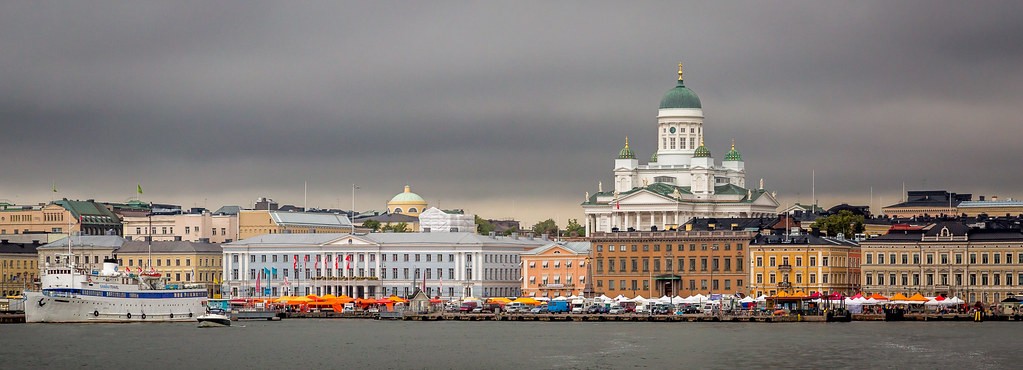Technological and ecological innovation for street cleaning is being tested in Helsinki. Trombia Free is an autonomous street sweeper, but not only that. It is also more water and energy-efficient than conventional urban and industrial cleaning models. Let’s take a closer look at this giant electric vacuum cleaner that is quiet enough to sweep the streets of the Finnish capital at night—a greener alternative for urban cleaning.
A giant, fully autonomous street vacuum cleaner robot
Trombia Free is the first autonomous electric street sweeper, a futuristic-looking cleaning unit from the Finnish company Trombia Tech. Since April 2021, the robotic sweeper has been tested in real conditions in Helsinki. First confronted with a simple bicycle path, Trombia Free is now proving its efficacity directly on Finnish streets at night.
The giant vacuum cleaner robot looks like a small car but without a driver on board. Trombia Free is 3.52 meters long and 2.3 meters wide and can work up to 3 meters wide with two gutter brushes. Just as domestic robots avoid obstacles, the sweeper also avoids collisions. It is equipped with optical sensors of the lidar type. This is a technology for measuring distance and obstacles using light beams.
The cleaning unit works day and night and adapts to the weather conditions. It combines the efficiency of Trombia’s scanning systems with artificial intelligence. Its algorithm allows it to move autonomously but also to detect the different pavements on its way. The algorithm also regulates the speed, cleaning power, and overall autonomy according to the environment encountered. The giant vacuum cleaner robot cleans between 5,000 and 15,000 m2 per hour.
An electric and water-efficient street sweeper
The current models of vacuum sweepers generally run on fossil fuels. On average, the consumption of these street sweepers is around 20 liters per hour. This results in CO2 emissions and discharges into the atmosphere.
Trombia Free is revolutionizing the cleaning sector and offering local authorities, maritime infrastructures, airports, and other parking operators the possibility of reducing their carbon footprint. The sweeping unit travels at a speed of 10 km/h, reduced to 6 km/h in the high-powered dusting phase. It has a variable autonomy, between 4 and 8 hours, depending on the degree of dirt and the size of the debris to be cleaned.
The Trombia Free road sweeper consumes 85% less energy than traditional vacuum units in terms of energy consumption. It also saves a significant amount of water, in 95% compared to conventional technologies.
Currently undergoing full-scale testing, this innovation for autonomous cleaning is scheduled to be marketed in spring 2022. This offer responds to a growing demand for autonomous units in the sweeping sector. It also considers the need for increasingly green solutions and thus provides a bold and revolutionary sweeping technology for the environment.
Read more:
7 Easy Ways to Reduce Ocean Plastic Pollution
5 Ways to Convert Excrement into Environmentally-Friendly Use
Why are Bees Important to our Planet
A Guide to Using Plastic Containers
Why Go “Zero Waste”
How To Conserve Resources And Save Our Planet
Vermicomposting: Raising Worms to Compost Your Waste
Ecologist Until Death? Choose the Cardboard Casket for Your Funeral!
Advantages and limitations of Cardboard Caskets
What Is Economical and Ecological Heating?
Environmental Aspects of Ecological Renovation
Environmental and Economical Heating Towards Sustainable Development
What Is an Energy-Saving House?
How Compost Is Ecological and Good for Your Garden
COMPOSTING: SIMPLE AND NATURAL WAY TO SAVE OUR PLANET
